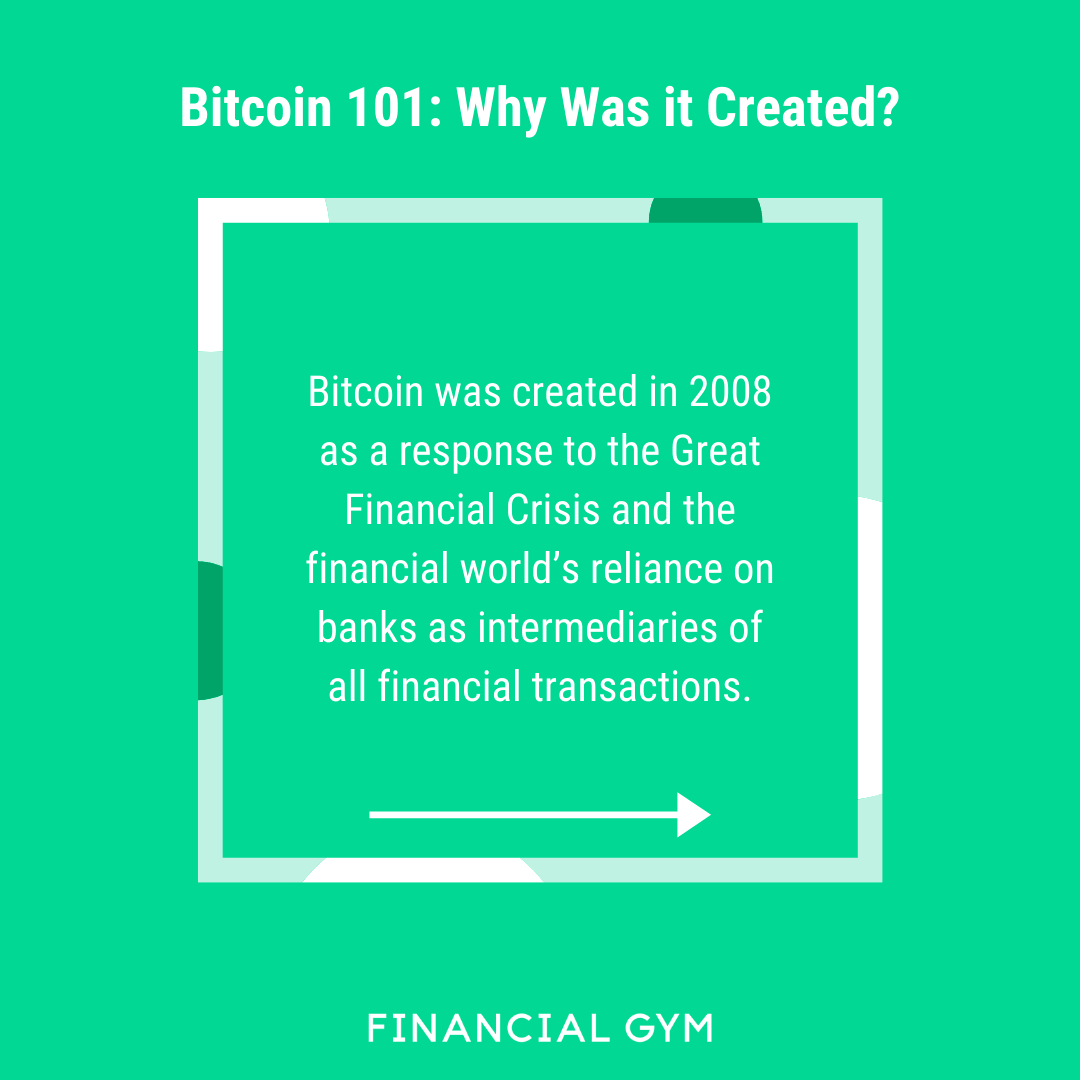What is Bitcoin and Why Was it Created?
What is Bitcoin?
Many of our clients ask the modern-day question: Should I be investing in Bitcoin? With the recent news of Bitcoin exceeding 20,000, there has been extra buzz about the cryptocurrency. We are not here to tell you whether you should or should not invest in Bitcoin. That’s a decision that is very personal and will differ from person to person. What we are here to do is explain to you (as simply as possible!) what exactly Bitcoin is and why it was created. It’s a complex topic and we believe that everything starts with education. If you’d like to discuss more about your own personal situation, and to see if this investment is right for you, be sure to schedule a free warm up call to get set up with a Certified Financial Trainer, they would be happy to chat further with you.
Why was Bitcoin created?
The concept of Bitcoin first came into creation in 2008, as a response to the Great Financial Crisis and the financial world’s reliance on banks as intermediaries of all financial transactions.
The founder, Satoshi Nakamoto, had the idea of disintermediating the banks from financial transactions, and creating a peer to peer payment system that did not rely on third party confirmation. This way, the banks did not need to be involved in each and every transaction.
It would rely on the standard of “proof of work”, which employs mathematical algorithms to confirm transactions without using a central authority (banks). Instead of the central network, the blockchain comes in.
What is the Blockchain?
Simply put, the blockchain is a data structure that holds transactional records while also securing the safety in each and every transaction. In effect, the Block chain is available to all participants and allows for elimination of centralized friction and introducing “proof” that each transaction is valid. This makes Bitcoin a currency for and by the actual participants in the exchange.
Why is it relevant now?
Now, 12 years later, the idea of scarcity of units has taken hold in the financial landscape, in part due to the COVID-19 pandemic. Central banks are debasing their respective currencies across the world and investors are seeking a safe haven or “insurance policy” from the effects of potential inflationary pressures. An “insurance policy” in this sense just means that investors would hold their money in places other than central banks, so that as inflation rises, their funds remain unaffected.
Historically, gold and other precious metals were the instrument of providing that insurance and it has been successful for close to 5,000 years. However, Bitcoin was not a part of history before 2008. Now investors are looking at Bitcoin as a possible companion to precious metals as inflation insurance. In fact, a virtual campaign is afoot to re-class Bitcoin as “Digital Gold”.
Arguments for Bitcoin performing this role are that it has a finite scale, meaning that it cannot exceed the mathematical algorithms that program the blockchain, thus eliminating inflation characteristics. It also is portable in its nature. Any phone or device can act as one’s “virtual wallet”. Obviously, it’s much more modern and mobile than a physical bar of gold. The arguments against this campaign are that it does not possess the history of gold nor its intrinsic value. Opponents claim that it is backed by nothing and thus has no value.
Bitcoin Futures
This tug of war is being carried out in the markets as we speak. Bitcoin roared to an over 250% return in 2020 alone. It started as a retail instrument but now is becoming accepted by large institutions. Increasingly, well-known portfolio managers and established financial figures have either praised Bitcoin’s characteristics or established positions in it outright. Michael Saylor, CEO of Microstrategy has converted his entire company’s cash position to Bitcoin. In addition, Square purchased $50 million worth of Bitcoin and PayPal has allowed transacting in the cryptocurrency as well.
Regardless, the need for a store of value is being reconsidered across the globe continuously. The reality is there has never been an alternative like Bitcoin before. The question is: will Bitcoin replace or complement precious metals or is it merely a fad that is having its moment of fame and will fade away?

